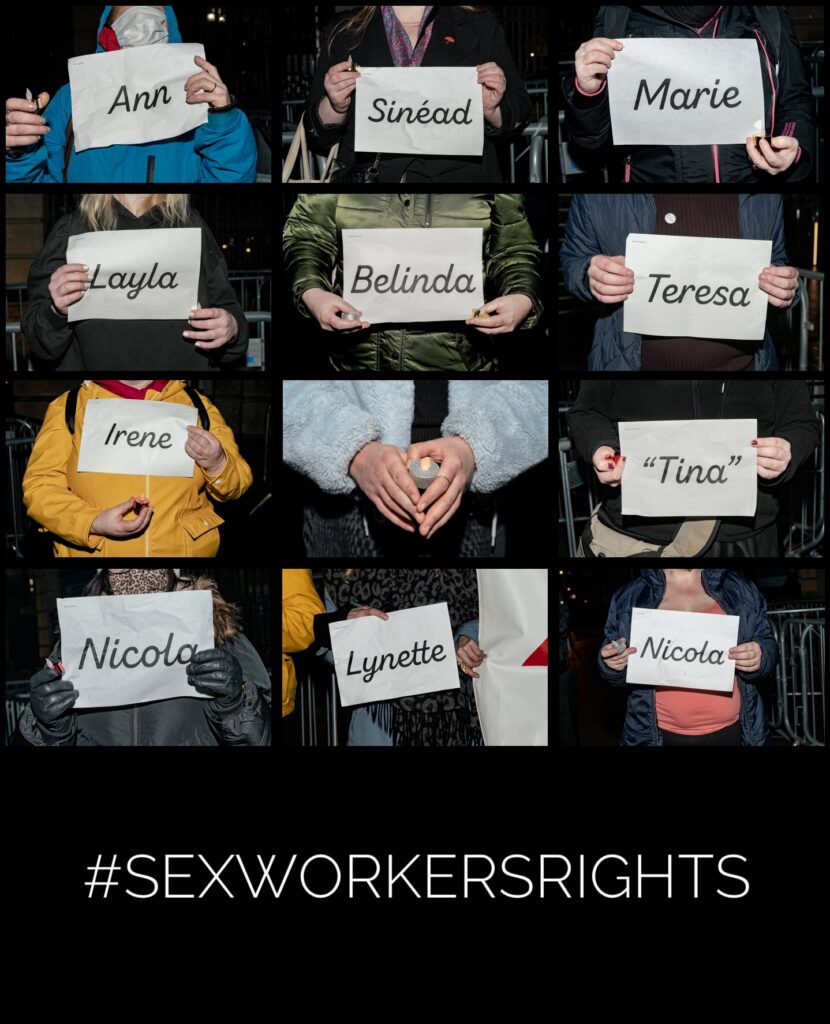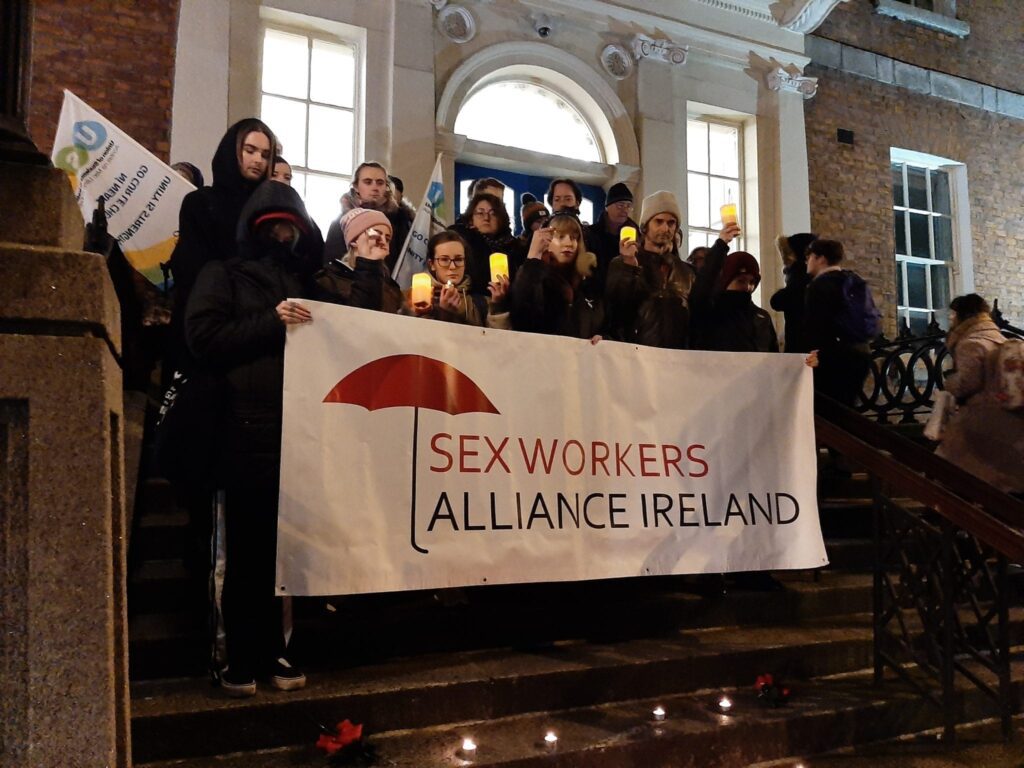Today is International Day to End Violence Against Sex Workers and we want to highlight how, through government policies, the state pushes people into sex work.Years of austerity, the housing crisis, lack of supports for people using drugs, Direct Provision, limits to how many hours international students can work, lack of decent employment, lack of affordable childcare and precarious work are all contributing factors as to why people enter sex work.
Aoife Bloom, board member of SWAI said “Once people have entered sex work the current law in place ensures they are not safe. Client criminalisation was introduced in 2017 along with increases in the penalties and a potential jail sentence for working together for safety. This means that to work legally sex workers must work alone. Almost all sex workers we speak to would like the option of sharing a premises for safety. Most of the people who have been arrested for so-called brothel-keeping have been young, migrant sex workers.”
She continues “Client criminalisation was introduced with great fanfare with the supposed aim of ending the demand for sex work and thereby ending trafficking in Ireland. It has utterly failed to achieve that goal. Focusing on the criminalisation of the clients of sex workers has done nothing to address the real root causes of human trafficking. Since we marked this day last year Ireland has languished at almost the bottom of the Trafficking in Persons report. Since last year trans people, especially trans sex workers of colour, are being murdered in record numbers globally. Since last year the violence which increased by 92% after the introduction of the law has not abated. Trans sex workers were the targets for the initial spate of violence that occurred here.
Client criminalisation has not ended sex work in Ireland but it has given the client the upper hand in the negotiating process. A sex worker has to ensure the client feels safe as the client is the one taking the risk. The legal pressure that clients face is absorbed by sex workers. This means shorter negotiation times, more risk-taking such as not using a condom, less screening and taking on clients you would normally refuse to make up for lost income. The reality is sex work is still partially if not fully criminalised in Ireland. When you decriminalise the act of selling sex yet make all the conditions for selling sex illegal, it is just ideology.
Recently a spate of so-called welfare checks by Gardaí have terrorised sex workers and even resulted in evictions. In the middle of winter, during an increase in the numbers of people contracting COVID, at the height of the housing crisis sex workers are being forced out of their homes by their landlords who cannot rent to them for fear of prosecution. This is the direct result of the law passed in 2017 which was supposed to end exploitation. Both the Gardaí and landlords are obliged to follow the law. The reality is that the Gardaí can’t help people that they are criminalising.”
“We are already degraded, objectified and mistreated by so many abusers and sometimes by the general public, we do not need to be treated in the same manner by the government or by officers of the law.”
– Naomi, active sex worker in Ireland
Aoife says “Criminalising the purchase of sex has done nothing to remove the reasons why women sell sex in the first place, and neither did lockdown. No supports were put in place when this law was introduced. Sex work is an economic activity and sex workers need rights like all other workers. The first step is to decriminalise sex work so that the health and safety of sex workers can be prioritised.”
“I want it to be safe for everyone. It’s all about our safety.”
– Beth, current outdoor worker
#DecrimforSafety #SupportSafeSexWork


